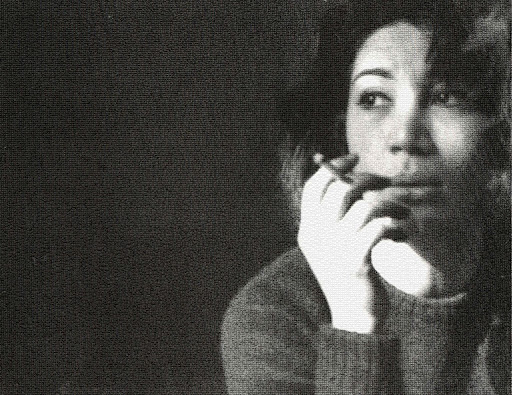The Best Short Story I Read in a Lit Mag This Week: “Und So Weiter” by Seth Clabough
One person’s trash is another’s treasure. This is often as true for prose as it is for yard sales: a character’s perspective and primary concerns compose the lens through which they see the world. The narrator of Seth Clabough’s, “Und So Weiter” (Blackbird), sees his past and future in a ghost ship drifting out to sea.
Clabough begins the story with the sighting of the boat.
It could be true. What the boat captain said. Boats do come undone to drift over the calid Pamlico. The old couple had seen one long ago. Just offshore. Small, sunpaled, unmanned for the rest of time. They had stood on her father’s skiff, watched it move off, marveled at the reckoning of trackless years that lay before it. That was before everything else.
The decades in the city had slipped past, had climbed into weather balloons at midnight & drifted off. Now, returned to divvy up their life’s accruement, the old couple met an island that had lived its own life without them. Its blue water dazzle, its mosquitoes in the equisetum, its rabbits & cacti in the dune slacks—this was where they had started.
A narrator with different concerns—for instance, the feeling of being trapped by life’s circumstance—might see in a ghost ship how free and unencumbered it goes about its life. Clabough’s narrator, however, is preoccupied with time, and our inability to control its passing. He imagines the boat adrift “for the rest of time,” then marvels at the “reckoning of trackless years.” Then, he goes on to imagine the years of his own life as “weather balloons” flying away.
Aloneness is also a concern—the boat isn’t just adrift, it’s unmanned. And they meet on an island that has “lived its own life without them.” Slipped in alongside the lyrical series of images is the occasion of the visit: the narrator is meeting with his wife in order to go about the details of their divorce…a separation that doesn’t appear to be mutual.
They sat outside overlooking the boats with their fried shrimp & coleslaw on paper plates. The thick folders with law-firm lettering were on the table. He tried to talk about David. He would be in his forties now. The man said he thought David would have married Allie, if he had come back.
“I don’t think so,” she said. “She wasn’t good for him.”
“We’d be grandparents now.”
“Stop.” She was shaking her head.
“Why?”
“Please. Just don’t.”
While initially Clabough utilizes more lyrical and ornate language in describing the boat, surroundings, and the past, for the present scenes like the one above, he keeps his sentences short and to the point, mirroring the business at hand, as well as their stilted conversation.
The story—and this section especially—reminded me of Hemingway’s famous story, “Hills Like White Elephants,” in the language, the civility of their argument, and how little access we get to their thoughts. Also reminiscent of “Hills…” is the couple negotiating a subject that one wants to discuss while the other doesn’t, in this case David, their son, who died years ago on the battlefield. While Clabough doesn’t explicitly point to the tragedy as being the cause of their divorce, its importance slowly becomes more clear, both by the space it is given in the story, and the fact that David—and his significant other, Allie—have names, while the narrator and wife do not.
Clabough draw out this significance further, revealing the genesis of their inability to speak about the shared tragedy, when one of David’s fellow soldiers visited them one day and asked if they’d like to hear the story of their sons passing. Each responded very differently. While the husband “…had to stop Palancio (the soldier) many times to remind him not to leave anything out,” his wife rushed from the room, not wanting to hear any more.
Finally, papers signed, the couple says goodbye.
“It happens,” she said, picking up her bags.
“What?”
She waved her hand at him, at the island & the expansive crown of sky encircling it. “Everything.”
He wanted to catch up with her. He wanted to tell her what Palancio said about David.”
In the last moments of their relationship, it’s still the one conversation they haven’t had that weighs on the narrator. What might have become of their son. What did become of their son. What might have become of their relationship had they spoken of it. By the close, the ghost ship—while unmanned—is filled beyond capacity with the weight of their history, shared and otherwise.


